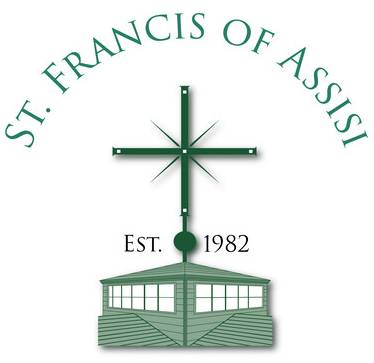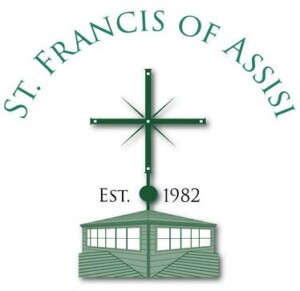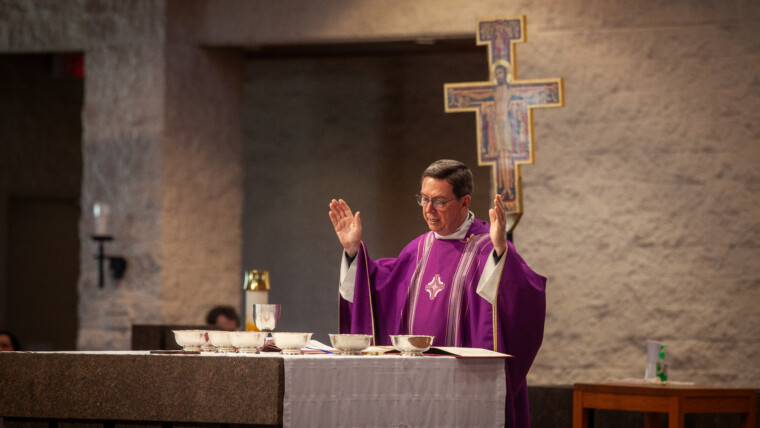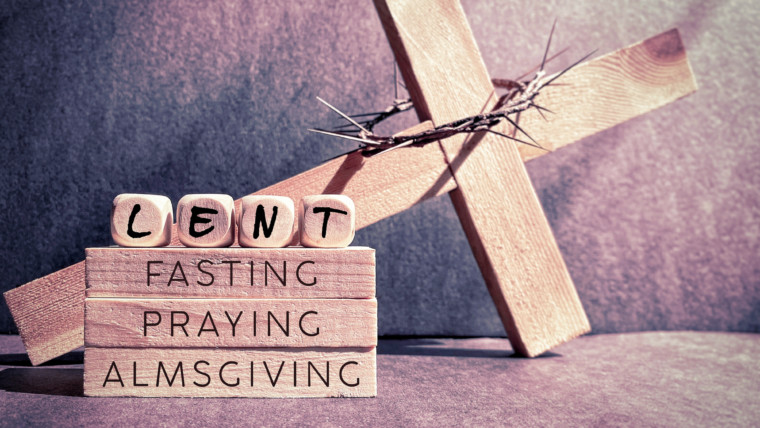Faith formation can frequently be viewed as a program or class, often in a classroom or group setting, to learn about the faith. It can seem more of a way to learn about the faith and know our beliefs ‘history, tenets, and background’ than a personal experience. ‘Spiritual Direction’ is a different and more personal experience. This ministry is centuries old but became a ‘formal’ program at St. Francis when Msgr. Clay came to our parish, although Father Steve Kluge was an advocate and spiritual director in his time here.
So, what is Spiritual Direction? According to Rosemary Somich, a director in the ministry, what may be a misnomer is that they, as Spiritual Directors, are providing answers or direction to their ‘directees.’ “It’s a conversation that’s focused towards the spiritual. The director in the room is God, not me. As Spiritual Director, I meet them where they are and see where God leads the conversation. Each conversation is as different as the person sitting before you.” In short, there is no formulaic program. “We don’t have a set agenda,” says Gladys Whitehouse, another director in the ministry, “It’s really up to the person and the concern or question about their relationship with God that they want to discuss. We are there to help them see and hear what is in their prayer life, discernment, or what God calls them to do.” Michael Somich, Rosemary’s husband and also a Spiritual Director, agrees and adds, “Directors listen and bounce back what they hear, and do the ‘directed work,’ again with God, to discern where the directee needs to go. The directors don’t tell someone ‘where to go’ or ‘what to do’; they challenge them to listen to where God wants them to be.”
What do those who seek out the ministry find? Gladys says, “It is typically not problem-solving or a temporary visit with a director to solve a specific issue. While it’s OK to do that, the full purpose is to have someone you can go to regularly and know you can share where God has been present to you to seek answers to questions such as: ‘How do you grow deeper in faith and what are you called to do?’ It is a check-in on your prayer life and the ability to get a perspective from someone walking your journey with you.” Rosemary appreciates what Spiritual Direction allows her to do for her directees and herself. “In Spiritual Direction, you learn about yourself, God, and God’s relationship with you. I am grateful every day for being called to this ministry.” Each day, she sees and hears how God works in people’s lives, even when sometimes they don’t see it right away. “We don’t tell people what to do but tell them what we are hearing from them, and they can ponder and do with it what they will.” She calls it a holy conversation. “We give them,” she continues, “Time to ‘feel allowed’ to say anything no matter how they feel it will sound to anyone else.” We hear a lot of pain and struggle, and we need to learn to sit with it and not fix it; we aren’t the fixers.” She finds it humbling to recognize how reliant everyone is on God.
Michael adds the intriguing realization, one that all the directors mention, that God is also ‘working on them’ at the same time. “There are many things that God wants to put in front of me as well,” he says. There are a couple of ways that happens, he finds. For instance, one directee may have a particular issue that may also be part of Michael’s life. “They bring that to the ‘front of me,’” he believes, “because God wants me to see it in me to help them, and me, deal with it.” He understands he has to learn about those issues and not be affected when they discuss them. “I’ve had to grow in learning to be there for someone when I don’t want to be there,” he adds. The challenge is to be open and non-judgemental. ”We go to where they are at without judgment. You have to go to where they are even if you may be uncomfortable, because that’s where God is, and, more importantly, where you need to be to listen and help them, to walk with them, and help them deal with the concern.” Gladys emphasizes that she has learned to listen better and be aware of God’s voice in herself and others. “I learned to trust in that voice,” she says. “When I first started,” she remembers, “I asked: am I really hearing the voice of God?” Now, she finds she is more confident and trusting in that voice and more able to discern if her ego or her wounds are getting in the way of hearing that voice.
“The experience starts,” believes Rosemary, “with a nudge from the Holy Spirit. Many people don’t even know what they want but know they have a “need,’ a ‘want,’ or long for purpose; they need help with a specific discernment or want a closer personal relationship with God.” Michael says, “People come for various reasons, some specific and some more general. They may say, ‘I don’t know where I am going or what to do; I just want to explore where God is in my life.’” Gladys has a similar view: “The process is a ‘growing in awareness’ of God in every little thing in our lives and how to be attentive to that, and be appreciative and comforted by it.”
Are you feeling the ‘nudge’ of the Holy Spirit? Do you have questions about your relationship with God and his role in your life? You may be interested in discovering more about the Spiritual Direction ministry and the experience of walking together along a path of discovery in your faith.
Author: Mike Watson







